How close are we to reducing infectious, child, and maternal deaths within a generation? In a new report published in The Lancet, Alma-Ata at 40 Years: Reflections From the Lancet Commission on Investing in Health, GHELI Faculty Director Sue J. Goldie and colleagues assess global progress towards a grand convergence in health—a reduction in infectious, child, and maternal mortality to rates seen in the best-performing middle-income countries. In this report, issued on the 40th anniversary of the landmark Alma-Ata Declaration that established primary health care as the key to achieving “Health for All,” the authors also discuss the future of primary health care through the lens of universal health coverage and health-related Sustainable Development Goals (SDGs).
More specifically, the authors revisit their conclusion from the 2013 Commission report, Global Health 2035: A World Converging Within a Generation (GH2035), that a grand convergence in health is technically and financially feasible for all but the poorest countries by 2035. In GH2035, the authors underscored the “unprecedented” demographic and epidemiological shifts which, alongside the globalization, have immense implications for achieving a grand convergence.
The authors find that convergence targets for under-5 and HIV/AIDS mortality could be achieved by 2035 should global mortality trends from 2010-2016 continued, but will fall short on targets for maternal and tuberculosis mortality. The Commission also projects that by 2035, most middle-income countries will be able to afford primary health care platforms for delivery of essential universal health coverage. However, many middle-income countries will struggle to meet reduction targets for non-communicable diseases, and many low-income countries will still lack the financing capacity to complete the “unfinished agenda” of grand convergence.
This report renews the call for national governments to invest in health, identifying five high-return priorities in international collective action: improved drugs and vaccines for tuberculosis; pandemic preparedness; international support to non-communicable disease control programs; development of evidence base to improve health system quality and resilience; and provision of resources to the World Health Organization and other UN agencies to strengthen their financial and legal capacity. The Commission emphasizes the importance of countries to realize the exceptionally high economic value of successful investment in health relative to cost, to boost wellbeing and prosperity globally.
Sue J. Goldie is the Roger Irving Lee Professor of Public Health and serves as the Director of both the Center for Health Decision Science, Harvard T.H. Chan School of Public Health and the Global Health Education and Learning Incubator at Harvard University. Goldie has catalyzed cross-sectoral collaboration beyond the university, played key roles in initiatives such as the Lancet Commission on Investing in Health, and infused global health perspectives into educational opportunities across schools. Piloting creative pedagogy, Goldie has developed courses in decision science and population health for undergraduates and graduates, and has received more than a dozen teaching and mentorship awards.
